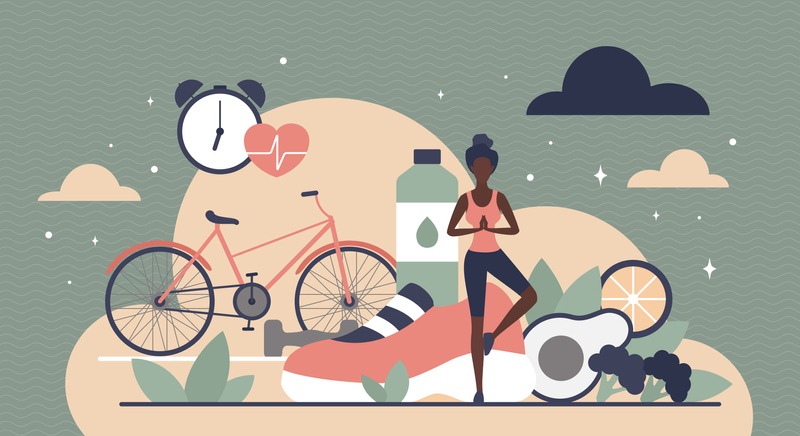
Feeling happier and healthier starts from within. While everyone’s needs vary when it comes to improving physical wellbeing, there are a few tried and tested methods that work across the board.
Be sure to get enough rest
Sleep deprivation has a number of negative repercussions for physical and mental health, such as obesity and an increase in depression risk. Aim to get at least seven to nine hours per night, depending on your unique requirements.
Eat healthy foods on an ongoing basis
Eating a diet rich in fruits, vegetables, lean proteins, and whole grains will provide your body with all of the energy and nutrition it needs for good health. Avoid processed or sugary snacks, which could leave you feeling lethargic after consumption.
Exercise regularly
Regular physical activity provides numerous health and psychological advantages, from improving heart health and stress reduction to the release of endorphins that make us feel great throughout our days.
Find an activity you enjoy doing (whether running, weightlifting, or anything else) and be sure to set aside at least 30 minutes each day for physical activity.
Practise mindful breathing and meditation
Making time to focus on deep breathing and relaxation techniques can help reduce stress levels and enhance overall wellbeing. Try to lead yourself through guided meditations lasting anywhere between 10-20 minutes, depending on how much free time you have available.
Take regular breaks throughout the day
As working nonstop without taking time out for yourself can quickly lead to burnout, it is important that you take breaks throughout the day for five to 10 minutes at regular intervals for just five to 10 minutes each time – this gives your mind and body time to refresh itself and take some deep breaths! Take this time out to walk around, stretch lightly or just take deep breaths.
Reach out If you feel overwhelmed
Be mindful that it’s perfectly normal to feel overwhelmed sometimes. We all go through periods of stress and anxiety. If something in your life has you feeling particularly overburdened, seek assistance from friends, family members or mental health professionals as soon as possible.
Make time for yourself every day
Self-care is essential to our overall physical and mental wellbeing, so take time every day for yourself. Be it reading a book, taking a walk or spending time with loved ones –that helps restore both. Set aside 15-30 minutes just for you.
Engage in self-talk that is constructive
Beating yourself up can have serious repercussions for both your well-being and mental health. Instead of dwelling on what hasn’t gone right in life, focus instead on what’s working right and practise positive affirmations daily to bolster confidence and increase self-esteem.
Spend time outdoors
Deliberately taking time away from technology and immersing ourselves in nature can do wonders for both physical and mental wellbeing. Take at least 20 minutes a day outside–whether that means going for a hike, gardening in your own backyard, or just sitting and taking in some fresh air!
Reconnect regularly with friends and family
Strong relationships are vital to our physical and mental well-being, so make sure you stay in contact with those you care about by setting aside time for conversation or sending thoughtful texts throughout the day. Doing this can reduce stress levels while creating a sense of community which will pay dividends long into the future.




Be the first to comment